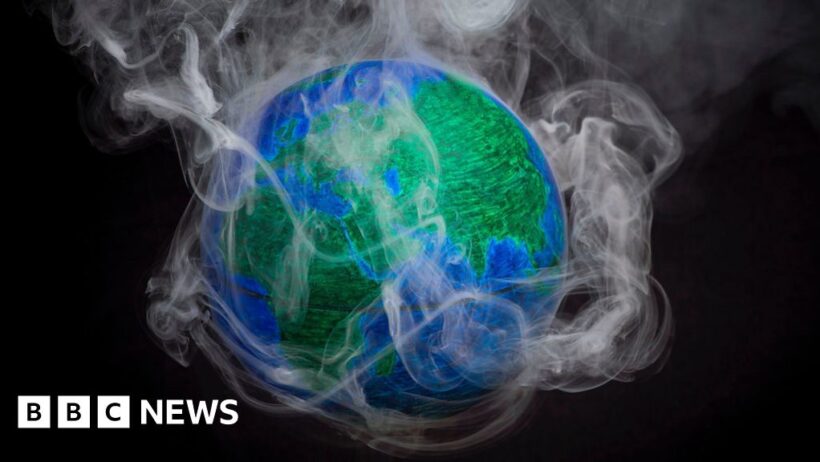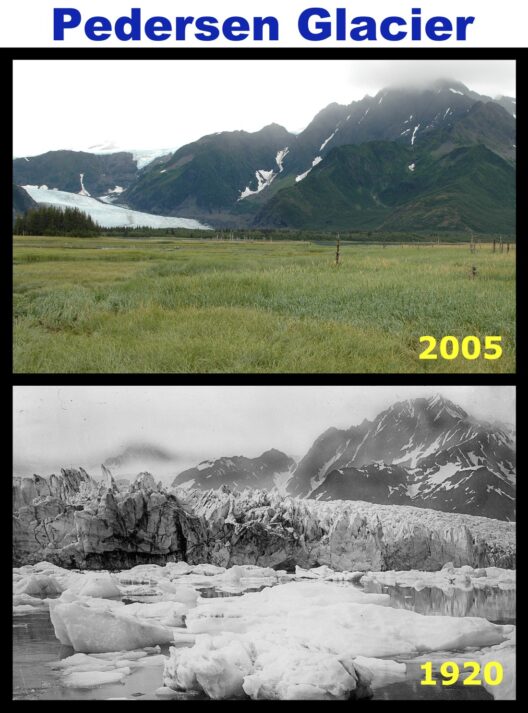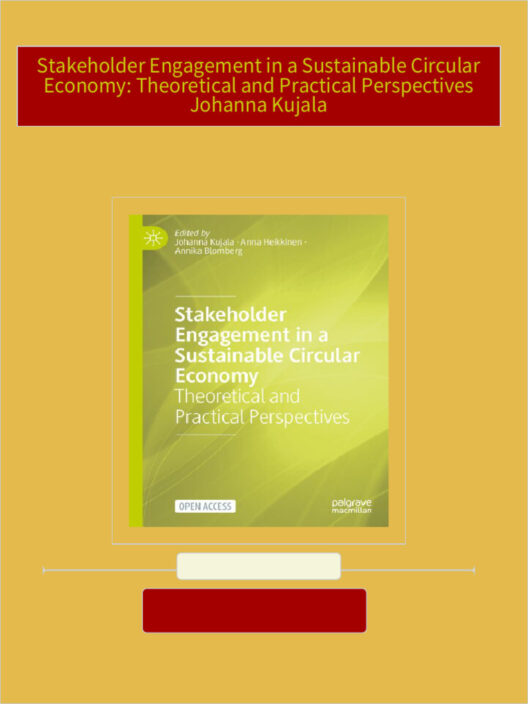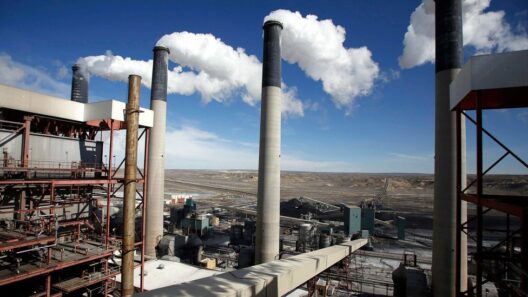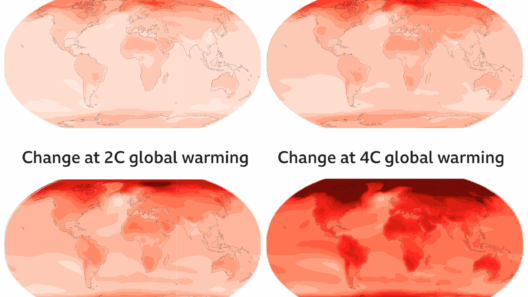The phenomenon of global warming is akin to a slow yet unyielding tide, creeping steadily and inexorably into our lives. It challenges the very fabric of our existence, weaving a complex tapestry that juxtaposes human activity with the ever-volatile rhythms of nature. Understanding what global warming means for you is not merely an academic exercise; it is an essential reckoning that shapes our present and defines our future.
To grasp global warming, we must first examine its fundamental mechanics. The Earth’s atmosphere acts like a blanket, composed of greenhouse gases that trap heat from the sun. This natural greenhouse effect sustains life as we know it. However, anthropogenic influences—predominantly from fossil fuel combustion, deforestation, and industrial processes—have exacerbated this effect, leading to an unprecedented rise in global temperatures. The term “global warming” has become synonymous with a plethora of cascading impacts—ranging from melting glaciers and rising sea levels to extreme weather events and biodiversity loss.
At its core, global warming is a reflection of our choices. It is a clarion call urging us to reconsider our relationship with the planet. For every car idling in a driveway or every unnecessary light left on, we contribute to the collective warming of our shared home. Each choice may seem minuscule, yet when aggregated across billions of individuals, the repercussions are monumental.
Why should you care? The implications of global warming extend far beyond the environment; they are intertwined with personal health, economic stability, and social equity. For example, increased temperatures can lead to the proliferation of heat-related illnesses. Vulnerable populations, such as the elderly and those with pre-existing health conditions, will find themselves at greater risk. This is not merely an abstract concern—it is a daily reality that may manifest in the form of heatwaves, aggravated respiratory issues, or vector-borne diseases like malaria and dengue fever.
Moreover, the economic ramifications are profound and pervasive. The agricultural sector is particularly susceptible to climate change. Crops that once thrived in stable climates are now facing unprecedented challenges—droughts in some regions and floods in others disrupt the delicate balance necessary for growth. This instability can lead to food shortages and soaring prices, ultimately affecting food security for everyone. The metaphor of a house of cards comes to mind; as one layer collapses under the weight of climatic stressors, the entire structure risks disintegration.
Additionally, the ramifications of climate change are not evenly distributed. Marginalized communities, often with the least resources to adapt or recover, bear the brunt of global warming’s effects. An increase in climate refugees—people forced to migrate in the wake of environmental catastrophes—exemplifies the social dissonance that arises from an overheating planet. The challenges posed by global warming underscore the urgent need for inclusive policies that prioritize equity and sustainability.
It is often said that change is the only constant; this adage rings especially true in the context of climate change. Adaptation has become imperative. Businesses and individuals alike must evolve their practices to mitigate the harmful consequences of global warming. Sustainable agriculture, renewable energy technologies, and green infrastructure are no longer fringe concepts; they represent pragmatic pathways to resilience. If the Earth is a vessel navigating through turbulent waters, then these innovations serve as the lifeboats, providing hope and guidance amidst the chaos.
The fight against global warming is not solely the responsibility of governments and corporations; it is a collective endeavor that demands grassroots involvement. Each voice, each action, contributes to a larger chorus advocating for planetary health. Community initiatives—such as local clean-up drives, tree plantings, or educational workshops—can galvanize momentum, transforming apathy into activism. The metaphor of a pebble tossed into a still pond applies here; the ripple effect can yield significant change, resonating far beyond the initial act.
Indeed, intergenerational dialogue plays a crucial role in fostering stewardship for future generations. By imparting knowledge and instilling values centered on sustainability, we equip young minds to champion environmental stewardship. Their engagement is essential, for they will inhabit a world irrevocably altered by our actions. Hence, nurturing this sense of responsibility is not just imperative; it is an ethical obligation.
As climate patterns become increasingly erratic, resilience emerges as a critical theme. Communities must fortify their defenses against the anticipated onslaught of climate-related impacts. Urban areas can invest in green spaces that enhance air quality, aid biodiversity, and reduce the urban heat island effect—all while providing citizens with respite from frenetic city life. Nature-based solutions remind us of the interconnections between ecological health and our own well-being, a symbiotic relationship that fosters healing and sustenance.
In this warming world, the boundaries of possibility expand as innovation flourishes. Cutting-edge technologies hold the potential to revolutionize our approach to climate change. Carbon capture and storage, for instance, may redefine how we conceive of emissions. Electric vehicles are transforming transportation while promoting cleaner air. By marrying audacity with responsibility, we can navigate the complexities of this era and turn the tide against global warming.
In conclusion, global warming is not just a distant threat; it is an omnipresent reality that reverberates throughout our lives. It is pivotal that we come to terms with its implications, both personally and collectively. Each day serves as an opportunity to reflect, act, and advocate for a sustainable future. The choices made now will dictate the world that we, and subsequent generations, will inherit. Embrace this challenge, for with awareness comes empowerment, and with empowerment comes the potential for transformation.



